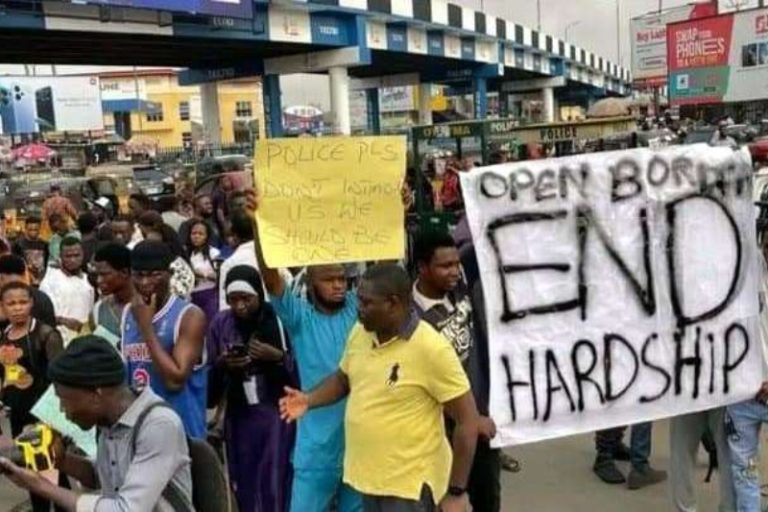

nigeria protest erupts in ibadan over soaring cost of living
Nigeria is currently grappling with one of its most severe economic crises in history. The inflation rate continues to rise, and the local currency has reached its lowest value. In response to poor governance and skyrocketing food prices, residents of Ibadan have taken to the streets to express their frustration.
The devaluation of the naira has sparked widespread protests throughout the country. Nigerians are deeply concerned about the dire state of their nation. Many are struggling to afford even two or three meals a day. Inflation has affected all aspects of daily life, including food, building materials like cement, textiles, transportation costs, and even the prices of cars and bicycles.
“People are suffering. This country is bleeding, hard, and angry,” lamented Sodiq Akorede, an artisan. “Everything is expensive, and there is nothing easy to do in Nigeria. We can only hope that things improve. Even our parents are complaining, and we as young people are also feeling the impact. People want to go to school, but there is no money. Please, help us appeal to President (Bola) Tinubu,” pleaded Olaitan Zainab, a fashion designer.
Government statistics recently revealed that the inflation rate reached a staggering 29.9% in January, the highest level since 1996. This surge is primarily driven by the escalating prices of food and beverages.
The plummeting value of the naira, which now stands at 1,528 units per US dollar, further exacerbates the hardships faced by Nigerians. The government’s reforms, such as the removal of gasoline subsidies, have put additional strain on the population. As a result, gas prices have tripled, and transportation costs have surged.
It is a challenging time for Nigerians as they grapple with the economic crisis and the associated difficulties caused by government reforms. The hope remains that conditions will improve, and the government will take necessary steps to alleviate the burden on its citizens.
"Baby Shark Dance" is still making waves in 2025! The kids' song by South Korea's Pinkfong is now the most-watched…
Kenyan sprint star Ferdinand Omanyala finished second at the opening race of the Diamond League in Xiamen, China, on Saturday.…
The incessant rains have caused flooding in Durban and its neighboring areas. It has disrupted several core areas, with a…
Cross-border activity suffered vast disruption when the new ban started at midnight Thursday with its direct impact on border checkpoints…
South African Bank fined R700,000 after determining the institution misrepresented a credit product as an investment opportunity. Following its December…
EA Sports shows that Toronto Maple Leafs will stop their 58-year title wait by beating the Colorado Avalanche in seven…
This website uses cookies.